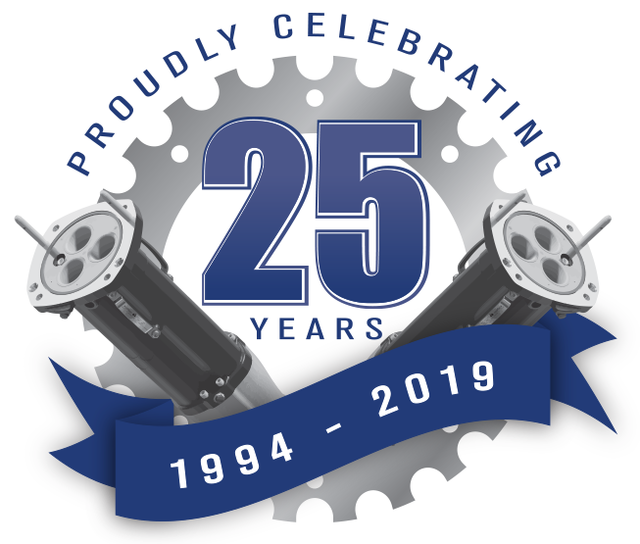ENVIRONMENT
Greening minerals transport for the climate emergency
As the climate emergency becomes ever more pressing, mining companies are looking to more efficient methods of transport. Scarlett Evans looks at Australia’s industry efforts to clean up the minerals supply chain, spearheaded by BHP’s drive for LNG-fuelled transport.


With an increasingly bright public spotlight on industries’ clean energy initiatives, mitigating environmental damage has become a growing priority for mining companies. Though the emphasis still lies predominantly with operations themselves, there remains the problem of emissions once minerals are actually out of the ground. The transportation of raw product is itself highly energy-intensive, with the majority of sites using diesel-fuelled trains and ships.
BHP’s announcement is an indication that things may be changing, however, and its release of a bulk carrier tender for LNG-fuelled transport is an industry - and indeed a world-first. The tender is for up to 27 million tonnes (or 10%) of the company’s iron ore along its busiest route for bulk transport, that taken by its iron ore exports to China. Targeting ship owners, banks and LNG fuel network providers, the company said it would favour providers that can deliver reduced emissions - specifically looking to eliminate nitrogen oxide and sulphur oxide from the supply chain, as well as greatly reduce overall CO2 emissions.
More than half of the country’s coal mines are managed by pro-Russian separatist militia.Credit: DmyTo/Shutterstock.
More than half of the country’s coal mines are managed by pro-Russian separatist militia.
Credit: DmyTo/Shutterstock.
The benefits of BHP’s latest ecological venture
The tender is in line with BHP’s new drive to boost green energy initiatives, following in the wake of its departure from the World Coal Association, as well as its pledge of $400m to develop emission-reducing technologies for its own operations - a decision that was also announced in July this year.
The measure also falls in line with a new requirement passed by the International Maritime Organization (IMO), which imposes lower limits on sulphur levels in maritime fuels as part of a wider push to meet clean air targets.
“We are not prepared to wait for a 100% compliant solution if we know that we can make significant progress now.”
Speaking with IMO spokesperson Natasha Brown, she says the organisation supports BHP’s move: “It is clear that the global introduction of alternative fuels and/or energy sources for international shipping will be integral to achieve the overall ambitions set out in IMO’s initial strategy for reducing greenhouse gas emissions from international shipping. There is room for all options to be considered, including electric and hybrid power, hydrogen and other fuel types.”
While not entirely carbon-free, LNG would still provide a significant drop in emissions and would help companies meet clean energy targets. In BHP’s statement, Rashpal Bhatti, Vice President for Maritime and Supply Chain Excellence said: “While LNG may not be the sustainable homogenous fuel of choice for a zero-carbon future, we are not prepared to wait for a 100% compliant solution if we know that, together with our partners, we can make significant progress now.”

AusProof is celebrating 25 years of business in Australia in 2019.
Industry shifts as investors step up
Looking forward, Brown says the IMO don’t yet have any indications that measures similar to BHP’s will be rolled out on a greater scale, saying: “We don’t have any forecasts for whether LNG will be taken up on an industry wide level.”
Yet an industry change certainly seems to be rumbling, and BHP’s tender could well be the beginning of a wider move away from carbon-intensive transportation systems.
“It’s phenomenal how quickly people are moving now,” says Simon Currie, founder and principal at energy advisory business Energy Estate. “Those industries that were traditionally seen as laggards (burning diesel, always burning diesel, never not going to be burning diesel) - these people are now moving.”
“Where governments are failing, investors are stepping up.”
The development of clean transportation systems and autonomous driving have been motivating factors in the shifted focus, with companies such as Fortescue also looking at the development of hydrogen-based storage and vehicles.
“Let’s hope this is not a flash in the pan, but a sustained focus for these major players,” says Currie. “It could see benefits not just in Australia but also in other resources-dependent countries such as Chile, Brazil and South Africa. If the resources sector can begin to drive a new supply chain, this will make a massive difference.”
“Investor pressure is a big thing as well,” he adds. “Where governments are failing, investors are stepping up. Big businesses are blamed for so much, but it’s also these investors that may well be the ones who create some of the greatest change.”

AusProof is celebrating 25 years of business in Australia in 2019.
An outlier or at the cusp of a revolution?
The main obstacle, according to Currie, is the continued need for younger, new perspectives in a typically old business.
“Energy hasn’t changed their people, and neither have resources” he says. “We need fresh blood, different viewpoints to people who have been in the industry for decades.”
“Australia’s basically been laughed at throughout the New York Climate summit, because it’s just been seen as an outlier.”
Improving the green reputation of Australia’s mining sector is crucial for the country on the global stage, particularly as countries are beginning to band together in their fight for cleaner air.
“Australia’s basically been laughed at throughout the New York Climate summit, because it’s just been seen as an outlier,” says Currie.
“(But) Australia’s absolutely at the cusp of things. We now have large-scale manufacturing and clean technologies proven to work, we only have to adopt them. The country’s universities have a strong resources and minerals focus, so you actually can get more of an alignment with the needs of minerals sector than other countries who may not have this same research focus. If you combine all this together, then you will end up with good overall outcomes for the mining sector.”

AusProof is celebrating 25 years of business in Australia in 2019.
